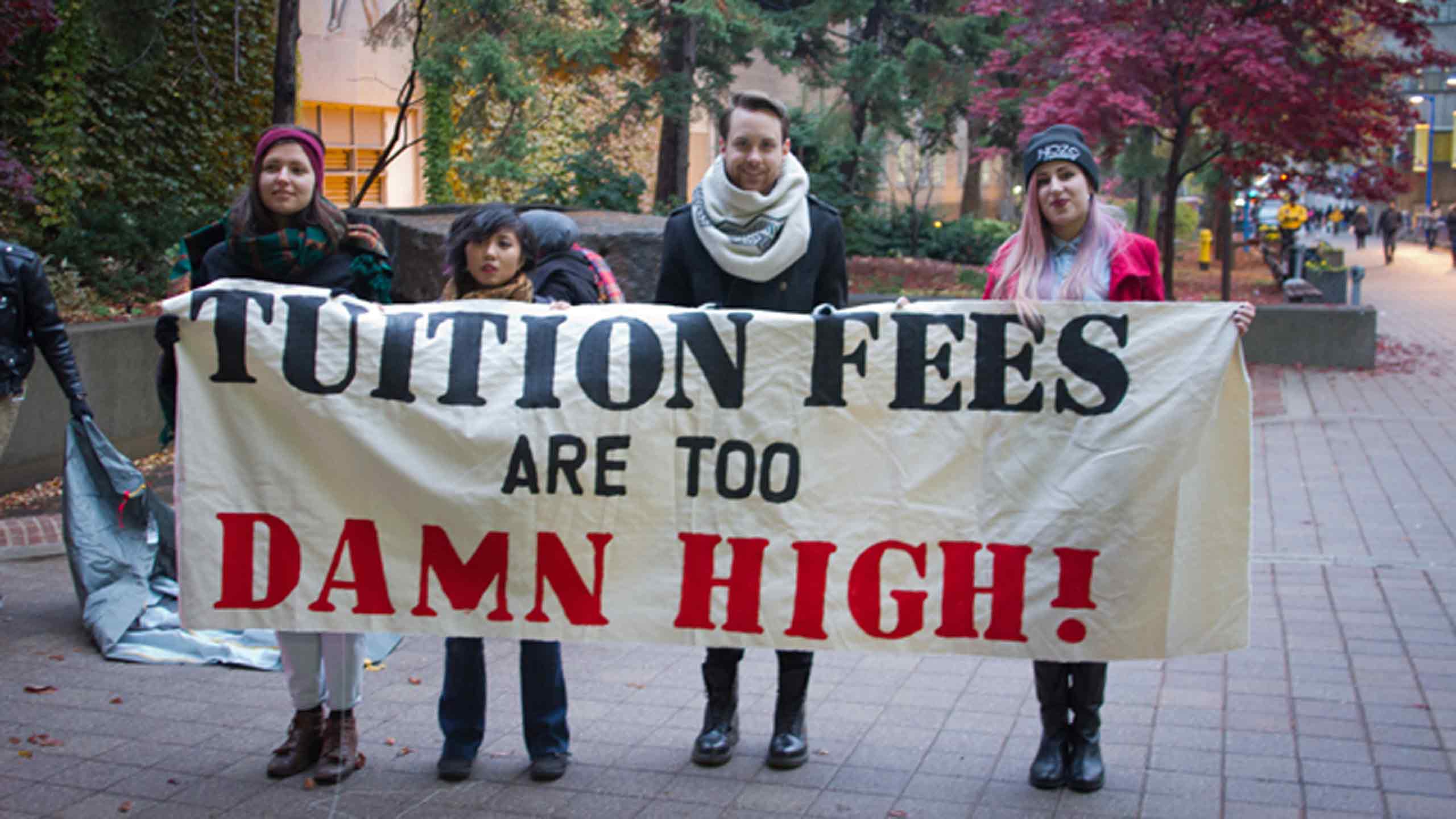By Keith Capstick
The Ryerson Students’ Union (RSU) has recently distanced itself from many of the Canadian Federation of Students’ (CFS) campaigns. But the fight for improved access to education is still alive at Ryerson.
The CFS’ recently rebranded “Fight the Fees” campaign has organizers stopping students on Gould Street almost daily. What’s different this year is that the CFS isn’t just looking to operate at the local level through students’ unions. They’ve appointed officers through 14 different “action commissions” at schools all over the province to mobilize students and get them out to their Nov. 2 day of action.
In the past, these campaigns have often ended in university boardrooms, with students demanding more from their school’s administration. But Nov. 2 will see what CFS-Ontario spokesperson Rajean Hoilett hopes to be thousands of students marching on Queen’s Park to lobby the provincial government directly.
“With this campaign what we’ve really done is build the infrastructure to fight this fight against the government and see some victories,” Hoilett said. “We’ve always had students’ unions as the first point of contact for our campaigns and student’s unions have continued to be the centre of the work that we’re doing within the student movement. These coalitions have helped us to open those doors and see more grassroot movement within access to education.”
The fight for free education has been a huge topic at Ryerson for decades. During the 2013-2014 academic year, when Hoilett was RSU president, the RSU was very involved in the “Freeze the Fees” campaign, which saw students camping outside of Jorgenson Hall in protest. As the RSU’s political ideology has swayed—with a new slate in power—the conversation hasn’t ended. It’s moved to the street with these action commissions and inside the Continuing Education Students’ Association at Ryerson (CESAR), rather than with the RSU.
Thus far, the CFS has collected more than 35,000 petition signatures across the province and about 7,000 at Ryerson alone. They’ve also incorporated pledges into their programming and have over 5,000 students who plan on attending the march at Queen’s Park.
The CFS, in conjunction with CESAR, has even managed to get Ryerson deans to apply formal academic accommodations to those missing class due to the demonstration on Nov. 2.
Both Hoilett and CESAR’s president, Rabbia Ashraf, attribute the success of this year’s movement to an overarching belief that free education is a reality, not a pipe dream, for students.
“Free education isn’t just this lofty idea that students really resonate with,” Hoilett said. “This sort of climate that we’re in has seen students thinking about wanting to fight for what they think post-secondary education should look like.”
Both mentioned that the Liberal government’s new tuition grant— which promised to give free tuition to low-income families—was not all it was advertised to be, but it’s given students the belief that this could become a reality.
Victoria Morton, the RSU’s vice-president education, said that she doesn’t want the RSU to put resources behind a campaign with “no history of gaining success.”
“We really tried to figure out material differences between Fight the Fees and past campaigns and there truly isn’t any,” Morton said.
Morton and the RSU did, however, co-sign the letter with CESAR to allow students academic accommodations for the Nov. 2 event. She added that the RSU is planning to support the event “so long as it doesn’t take away from [their] resources.”
For Vajdaan Tanveer, one of the CFS’ organizers at Ryerson, this is about taking students’ voices right to the people with the policy-making power.
“At Ryerson we know we pay some of the highest fees in Canada, but what are we doing about it?” Tanveer said. “We’re taking this message right to the legislation and telling them what students want.”













Leave a Reply